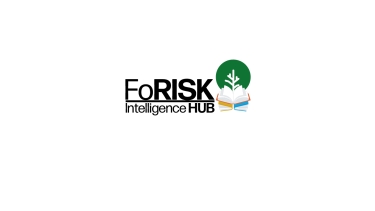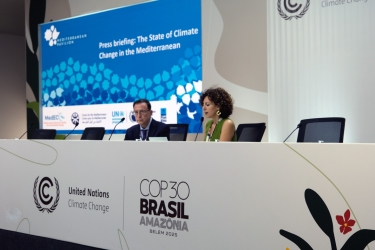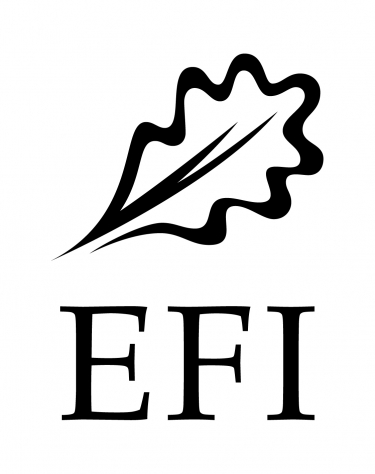Mainstreaming Biodiversity in Policymaking: A Collective Call for Transformative Change

On June 4–5, 2025, over 150 participants gathered in Brussels and online for a two-day event hosted by 11 projects funded under the Horizon Europe Cluster on Transformative Change for Biodiversity.
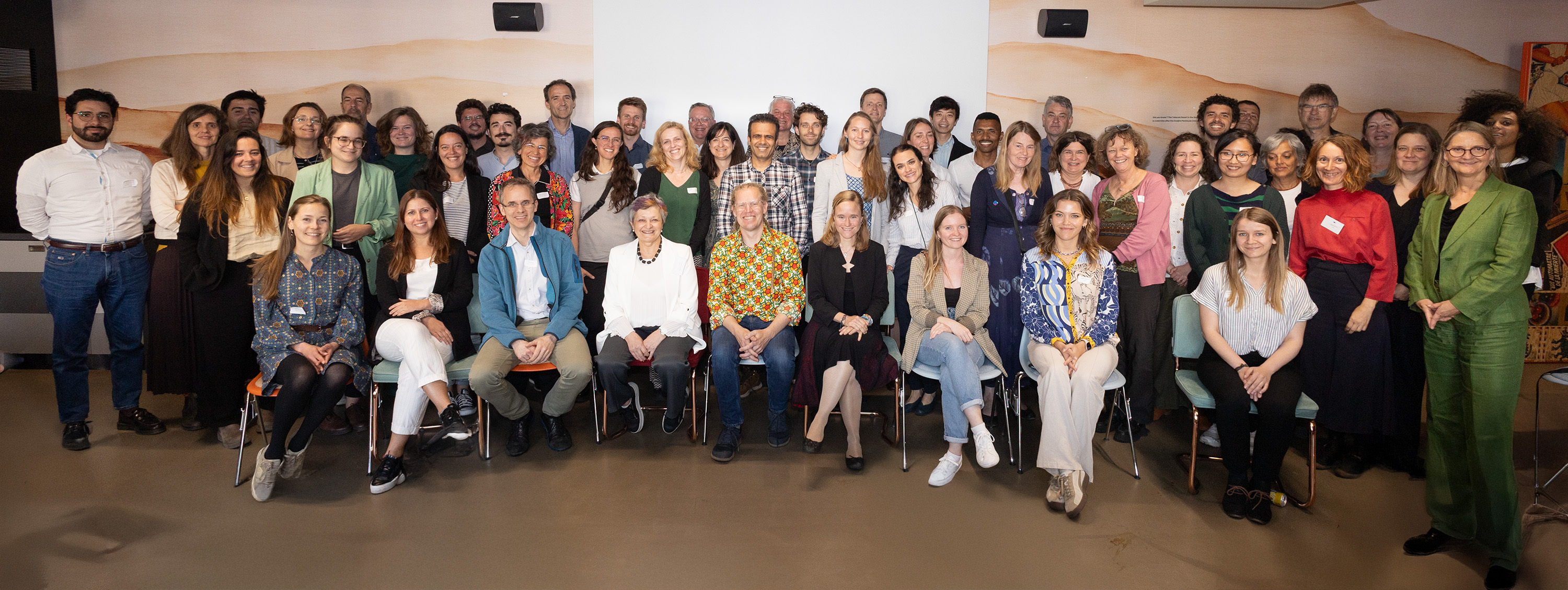
CLEVER, BioValue, RAINFOREST, BAMBOO, BEDROCK, BioAgora, BIONEXT, BIOTraCes and TRANSPATH, PLANET4B and DAISY joined forces to gather and offer insights from each project. The event created a shared space to reflect on how biodiversity can be more effectively integrated into public policymaking, spatial planning, and socio-economic systems.
Rather than presenting isolated results, the projects explored the deeper shifts needed to address the biodiversity crisis. Panelists were invited to share their insights, to connect science-related results with policy representations at the institutional level. Leading researchers from projects, Maria Rosário Partidario from IST, coordinator of BioValue, and Jan Börner from University of Bonn, coordinator of CLEVER, presented their findings and shared their knowledge, while policymakers and representatives from the European Commission emphasized the central role of biodiversity in the economy, environment, and society. Invitees from the Directorates-General from the European Commission were present, among these, Humberto Rosa (DG ENV), Gilles Doignon (DG R&I) and Anne Teller (Formerly DG ENV).
Through interactive workshops and a policy dialogue session, the event opened a much-needed discussion on how to realign institutions, narratives, and planning frameworks around biodiversity as a core societal value.
Each project also contributed with poster presentations highlighting key insights from their published research, practical case studies, and emerging best practices. These visual materials served to share concrete results and stimulate further discussion among participants, offering an accessible way to engage with the diverse projects’ approaches.
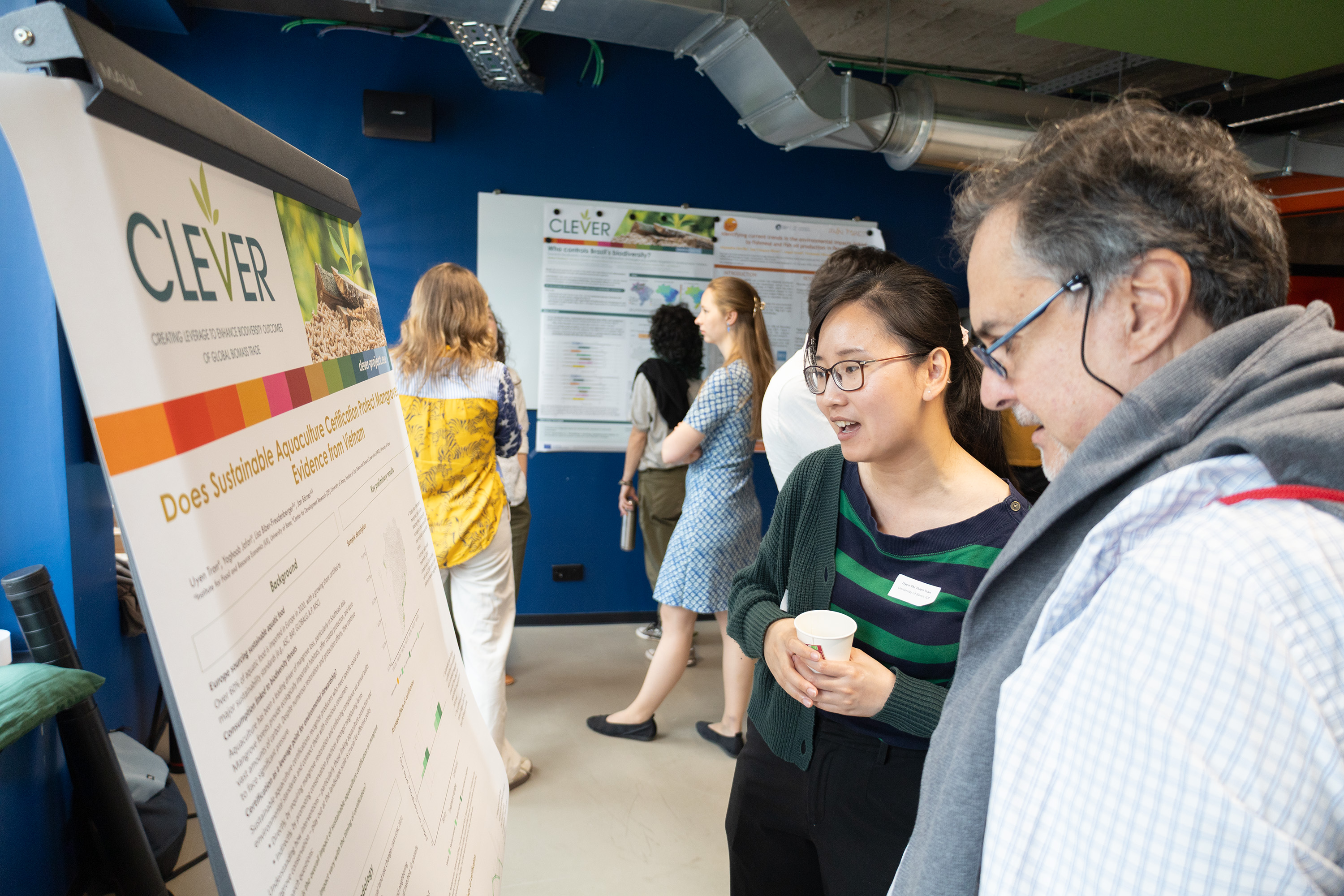
Projects presenting their work within the Transformative Change for Biodiversity initiative
Key Themes Emerging from the Event: From Projects to Systemic Change
From case studies to tools and governance models, the event underscored the importance of working beyond project boundaries. The collective message was clear: tackling biodiversity loss requires systemic thinking, where biodiversity is not treated as an add-on, but as a foundational element in shaping futures.
Sessions highlighted that transformative change cannot succeed without addressing questions of justice, equity, and inclusion. Discussions emphasized the need for more participatory and inclusive planning processes that give voice to diverse communities, especially those most affected by environmental degradation.
Humberto Rosa emphasized: “We can only protect and mainstream biodiversity through enlightened human interest—its role for quality of life, food security, wellbeing, resilience and so much more. Biodiversity has long been a second thought in policy, but things are changing. The EU Green Deal brought momentum; now we need to work for more of society to follow.”

Discussions during a project’s session
Reframing Biodiversity as Opportunity: Integrated Governance for Real Impact
Participants recognized the fragmentation that often hampers biodiversity action. A key takeaway was the necessity for integrated governance—across sectors, scales, and institutions. By aligning environmental goals with economic, social, and territorial agendas, policymakers can unlock synergies and avoid trade-offs.
Throughout the two days, there was a strong call to shift how biodiversity is framed in public discourse. Moving away from narratives of loss and constraint, biodiversity must be communicated as a source of resilience, wellbeing, and long-term prosperity. The language used in policymaking and planning is not neutral—it shapes perception and determines priority.
The two-day gathering marked a significant step toward building a shared understanding of what transformative change for biodiversity entails. It demonstrates the power of collaboration—across projects, disciplines, and sectors—to challenge conventional approaches and to open new avenues for change. As the Horizon Europe projects continue their scientific research work, the momentum generated in Brussels will continue to fuel collective learning and cross-sector innovation for biodiversity.
All key insights, discussions, and outcomes from the event will be consolidated into a white paper, which will serve as a summary of the collective findings and reflections, culminating on policy recommendations. This document will bring together project results, shared lessons, and forward-looking recommendations, contributing to the broader dialogue on transformative change for biodiversity and informing future policy and practice.
Photo credits: Adobe Stock - Hilda Weges (cover image) and event photos Rosa Castañeda, European Forest Institute
